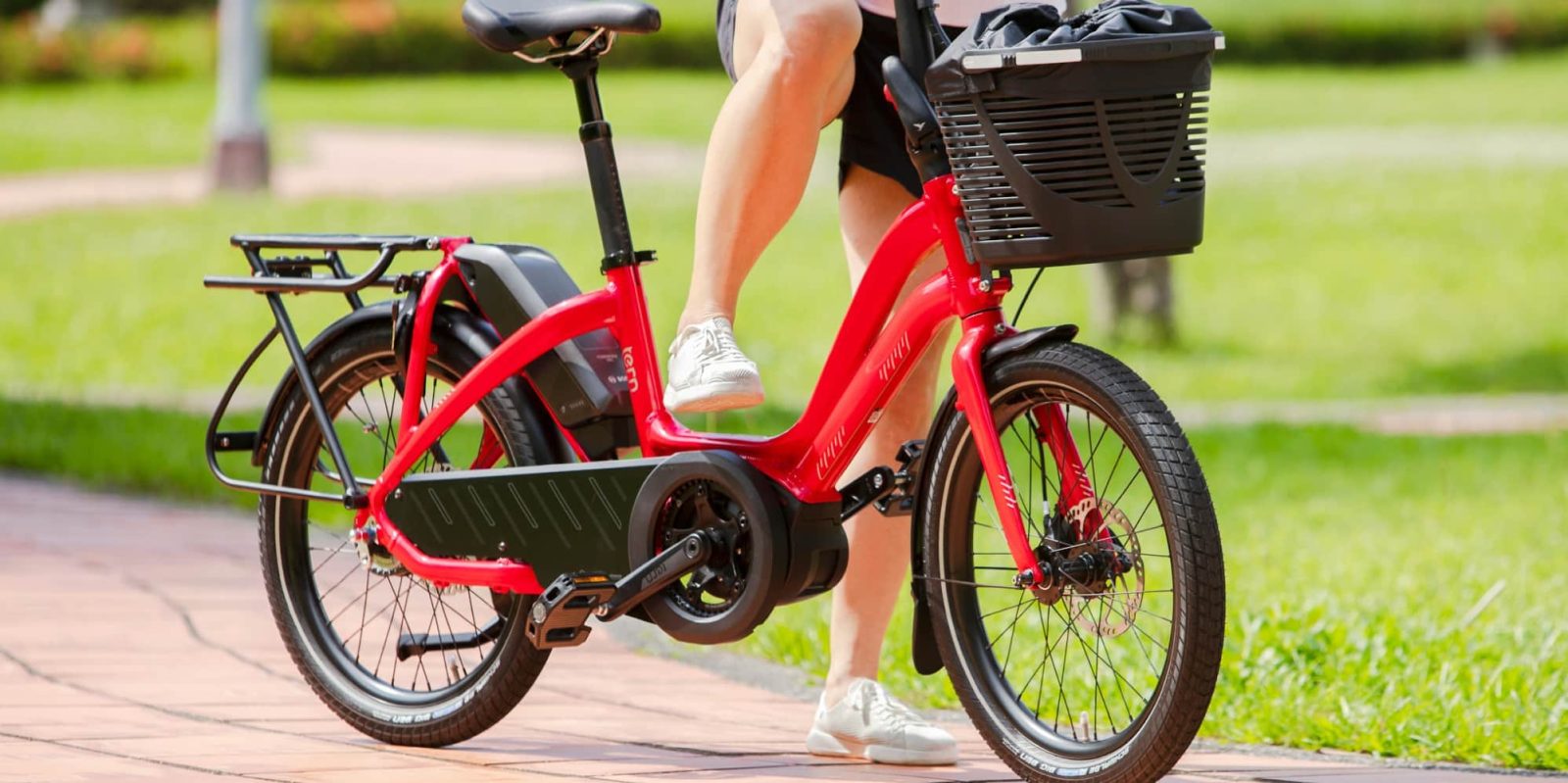
Here at Electrek we cover all sorts of electric vehicles, from cars and trucks to planes and trains. But one type of electric vehicle outsells all others combined many times over: the humble electric bicycle.
And yet, for some reason, electric bicycles have been plagued by a running misconception that switching to an e-bike means a slow decline into sedentary demise. In reality, that couldn’t be further from the truth. The simple fact is that switching to an e-bike is one of the best things you can do to get more exercise. Don’t believe me? See why, below.
What is an electric bicycle?
First, let’s set the stage with some quick definitions. Electric bicycles are nearly the same as pedal bicycles, except for the inclusion of an assist motor and a battery pack. They use the same pedals, wheels, seats, tires, handlebars, etc. An e-bike is just a pedal bike with a helper motor.
There are multiple types of e-bikes, with the main two groups being pedal assist (where you have to pedal to engage the assist motor) and throttle-enabled (where you usually have the choice of using pedal assist like the first style or alternatively using a hand throttle that doesn’t require pedaling).
Both types are capable of offering great exercise, since both include pedal assist functions where you only get motor assistance when you’re also pedaling. But keep in mind that if you’re exclusively using the throttle on the e-bike instead of pedaling, you’re not getting much more exercise than you would on a horse. The good news is that as long as you’re using pedal assist, switching to an electric bike means you’ll be getting more exercise and living a healthier lifestyle.
“But switching from what?” you may be thinking. Oh! Now you’re asking the right question!
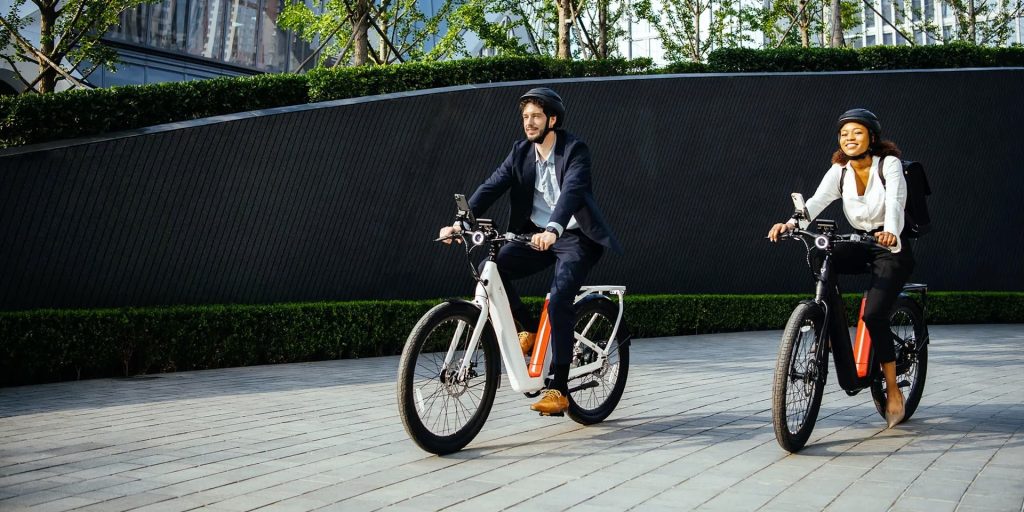
It’s not e-bikes versus pedal bikes
For some godforsaken reason, the e-bike argument is often reframed as electric bikes versus pedal bikes. It’s not uncommon to see comments on e-bikes articles to the effect of “Just what a country with 40% obesity epidemic needs. Less exercise.”
But that’s the wrong way of looking at it, and the numbers prove it.
When someone “switches to” an electric bike as a form of transportation, they are almost always switching out of a car. Sometimes it’s a bus or a train. But it’s almost never switching from a pedal bike to an e-bike.
And do you know why? It’s because almost no one rides a pedal bike.
If you’re a pedal cyclist then you’re surely scoffing right now. I’ll give you a minute. But then climb down from your high saddle, come back to me and look at the numbers. Surveys vary, but nationwide studies from 2019 found that around 0.6% of the US commuters used a pedal bike. That’s not nothing. It’s around 760,000 people, actually. But out of 130 million commuters in the US, that’s almost nothing.
To be fair, bicycle commuting numbers grew after the COVID-19 pandemic amid a renewed interest in cycling, but we’ve still barely broken into integers here in the US. (Side note: Europeans, your numbers are much higher. That’s awesome. Keep doing you.)
But the fact remains that somewhere between 75-90% of all commutes in the US occur by car (numbers vary widely depending on the city and whether ride-hailing/taxis/car-sharing are included).
So if someone is switching to an electric bicycle, they’re almost guaranteed to be switching away from a larger vehicle like a car, truck, bus, or train.
And when that’s the case, which it almost always is, they’re essentially guaranteed to be getting more exercise.
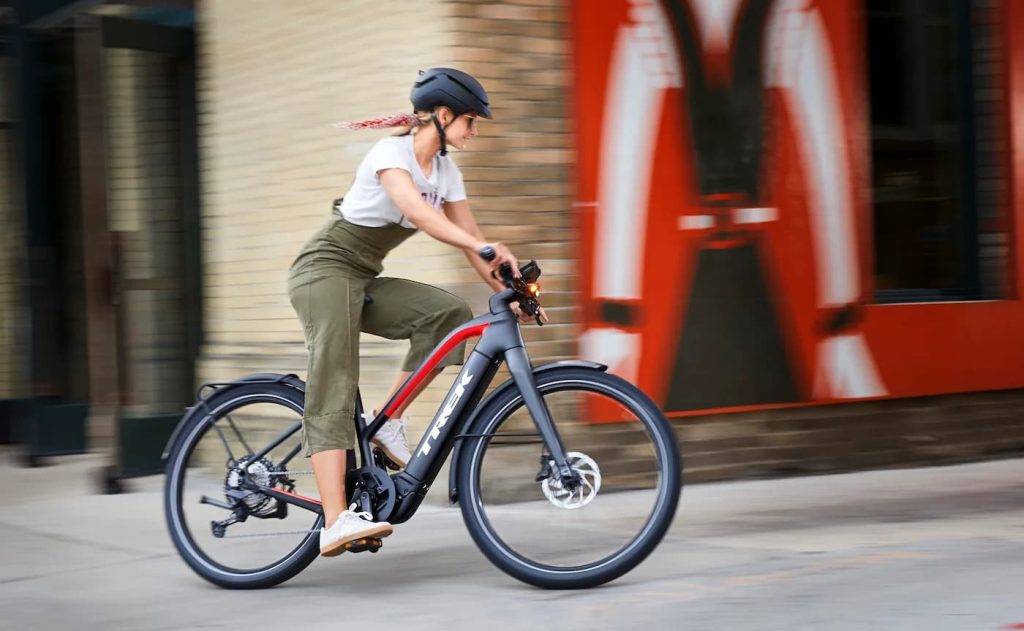
Electric bikes are great for exercise
Study after study after study has reported the health benefits of e-bikes for exercising. Boosted cardiovascular health. Better fitness test results. Improved mental health. Lower BMI from weight loss. The health benefits of e-bikes are long documented. They probably make you better in bed too. I have no study to cite for this but think about it: a healthier body and mind surely aren’t going to hurt in the bedroom.
Most Americans find it hard to fit 30 minutes of moderate exercise into the day. And that’s fair – we all live busy lives. But a quick 15-minute e-bike commute to work gets you that 30 minutes per day without forcing you to set aside a specific block of daily exercise time. And many people cite e-bike exercise via commuting as a convenient level of exertion that gets your heart pumping without being so strenuous that you arrive at work sweating and in need of a shower.
In fact, I’ve heard the same story over and over again from new e-bike converts: They bought an e-bike to get to work but found it to be so enjoyable that it turned into a recreational activity too. Their e-bike is a daily commuter vehicle and a weekend pleasure ride.
Can you get most of these benefits from riding a pedal bicycle? Of course! And if you can make it happen on a pedal bike, that’s great! If you can walk to work, that’s great too! But you know what? You probably won’t. It’s nothing against you, personally. It’s just a numbers game. Due to the exertion required (and that resulting “sweaty at work” situation from pedal bikes), there are just so few out there that the odds of you being one of them is miniscule.
If you ARE a pedal bike commuter or a walk-to-work person, that’s awesome and I applaud you. But you’re in a teeny, tiny minority. To be honest, I don’t even know how you found this article. You’re practically an endangered species at this point. Screw the pandas. We need bumper stickers that say “Save the cyclists!”
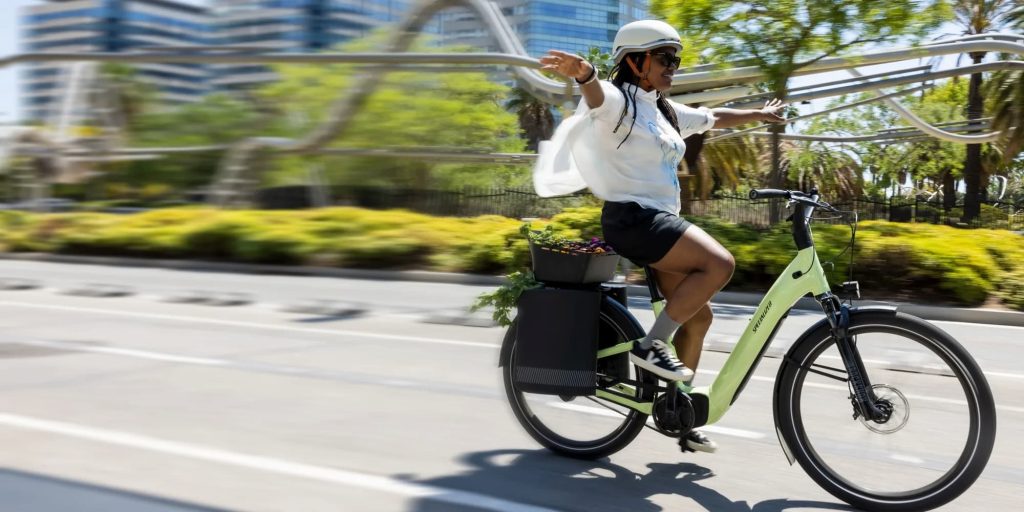
So sure, I’m not saying pedal bikes aren’t great for exercise too. But again, that’s not the argument here. That’s reframing the whole idea incorrectly. Pedal bikes are great for the 1% of folks who ride them to work. For the rest of Americans, e-bikes could be the fun, fast, and efficient form of exercise that gets you out of the glass box and into the world, experiencing your city around you while improving your health.
Top comment by Duke
I completely agree. Four years ago, I got a regular bike to ride around the neighborhood. Next I started commuting to work a few times a week. Then I commuted every other day. Then four days week, my goal was to beat public transportation. I achieved that then got an ebike to make my commute times both ways consistent. I haven't turned back. My commute was 12 miles one way. I have since moved and now my commute is 6 miles one way. It's peaceful way to get a workout in and to integrate fitness into your lifestyle. I'm less stressed and in better shape. I lost 50 lbs and my insulin injections have decreased 80% from when I first started. Now I work on getting a better commuter bike and am selling one of my motorcycles. I don't own a car and have lived in Denver and Albuquerque.
With more cities improving their cycling infrastructure (one of the top reasons commuters often cite for not cycling to work), it’s becoming easier than ever to leave the car in the garage and hop on an e-bike. To be fair, the US has a long way to go in building safe, protected bike lanes. But progress, however slow, is headed in the right direction. Many advocacy groups and individual bike/e-bike commuters alike are making their voices heard, with more cities listening and installing better bike lanes.
That’s important progress, but it shouldn’t stop those who already can bike from considering making the switch today.
The “I live on the side of a 50 mph highway and can’t bike to work” crowd get a pass, but please understand you are also the minority. For the rest of you that live in a city, consider how biking, e-biking, walking, skipping, kick-scootering, or any other form of active personal transportation could improve your commute, your health, and your life.
And for those of you that are dead set on never leaving the comfort of your SUV, just understand that cyclists help you too. The next time you see one zip by you while sitting in your captain’s chair, realize that you’re waiting in a little bit less traffic because of them. You’re welcome.
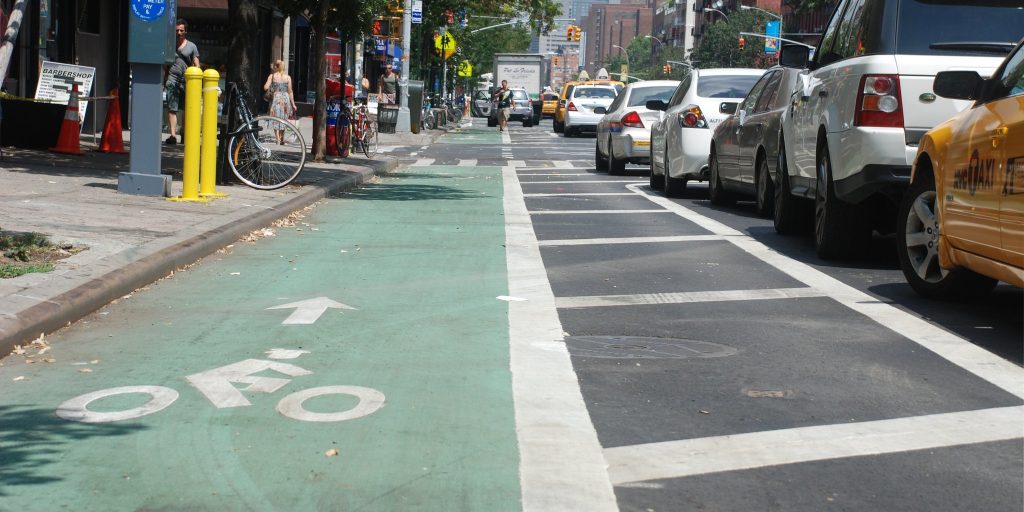
FTC: We use income earning auto affiliate links. More.






Comments